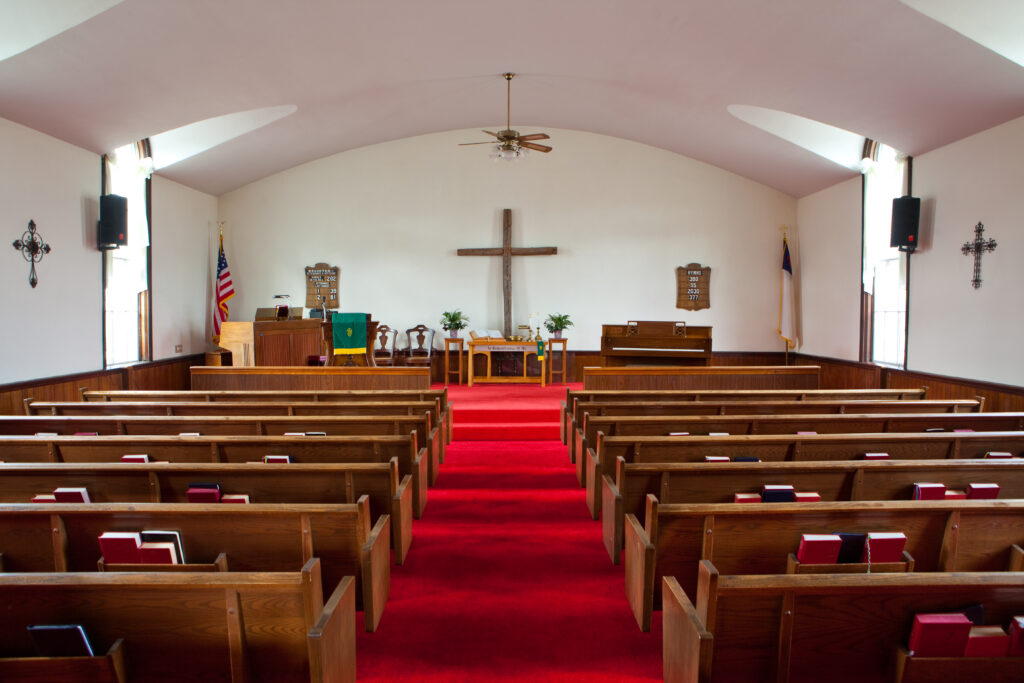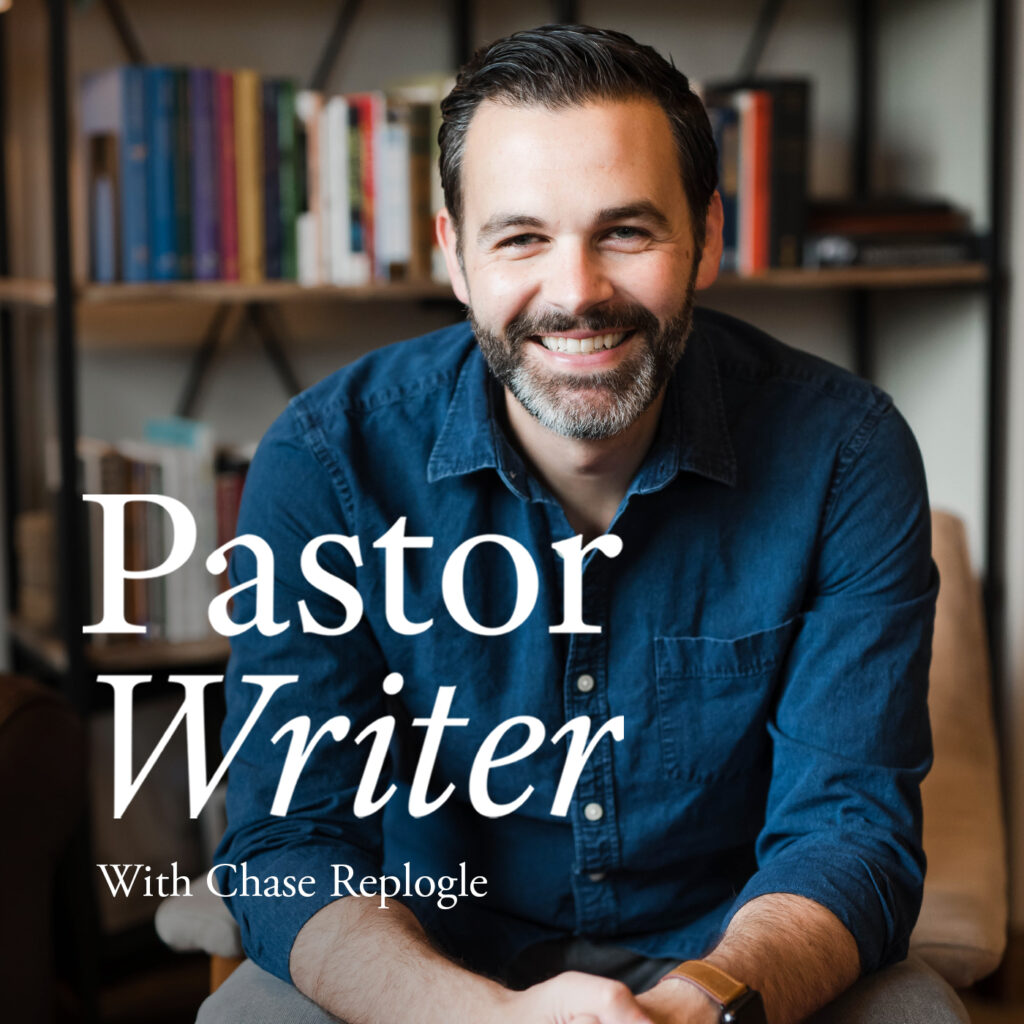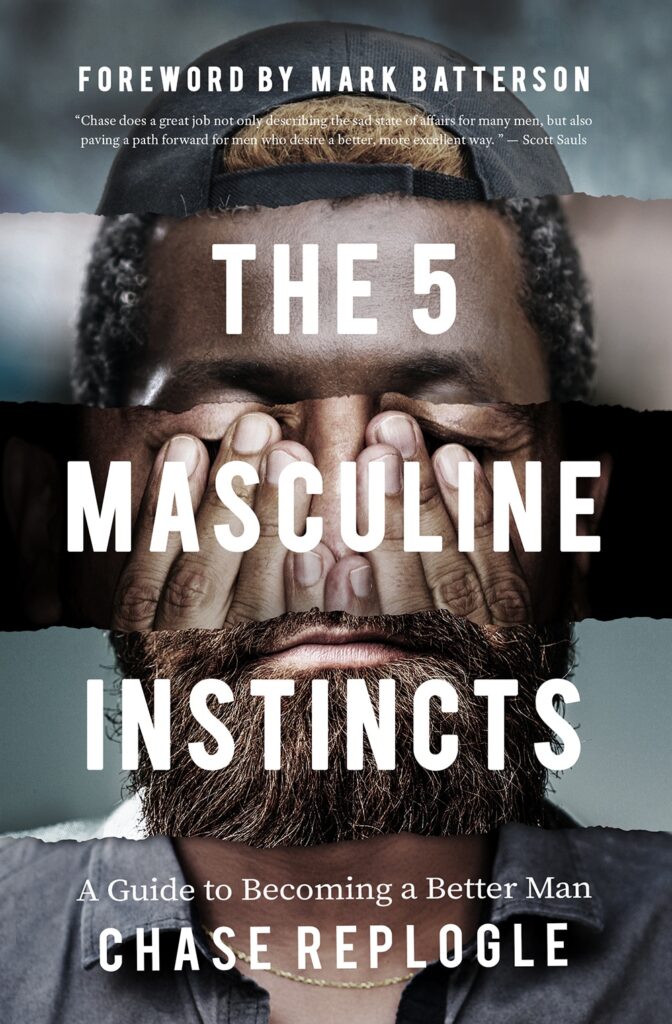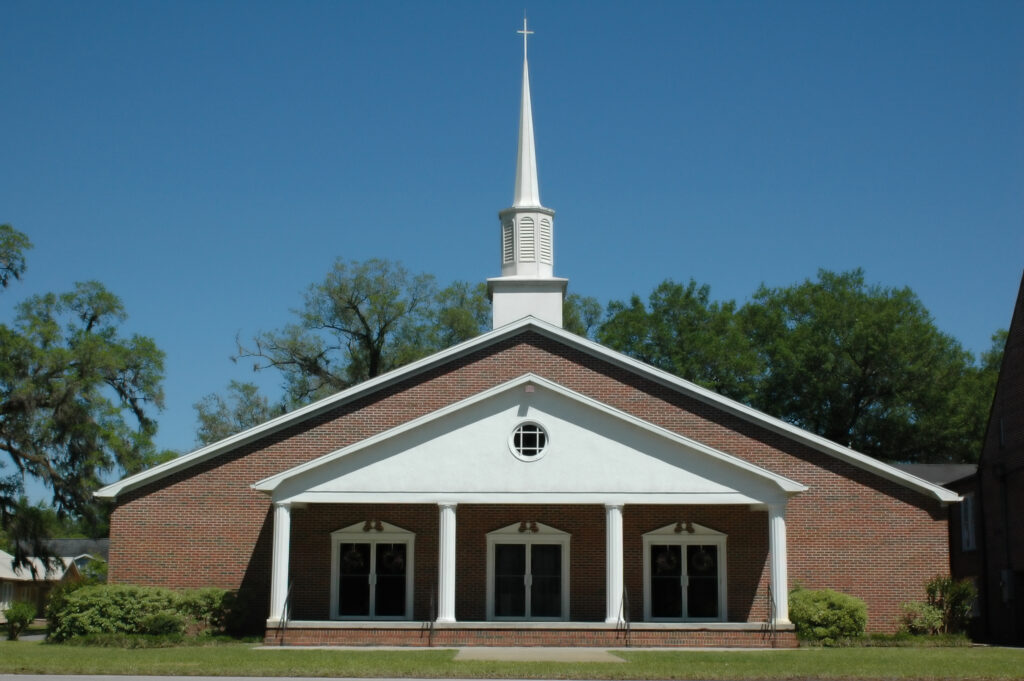As you’ve heard me say many times before, the key to writing books people want to read is writing books that people already want to read.
It’s easier to write a book that people want than to change someone into the kind of person who wants to read the book you wrote.
It’s hard to change yourself and your own desires, but it’s nearly impossible to change someone else. You’ve probably learned from your marriage and relationships that changing other people is impossible. It’s even harder for authors to change their readers into people who like to read what they’ve written.
In fact, you can’t change your readers, but you can change your book.
The key to success is to know your readers, but many Christian authors find that challenging.
They wonder:
- Where do I find my readers?
- How do I make friends with my readers?
- What if I have no place to connect with my readers?
If only there were a place where Christian readers gathered for regular meetings, perhaps even several times each week.
Well, guess what? There is! It’s called church.

For the last 2,000 years, Christians have gathered in meetings where they pray, sing, read the Bible, and fellowship. And if you are writing for Christians or even churchgoers, your readers gather at church.
That is until recently.
There’s been a decline in church attendance that started before the pandemic. I went to a pre-COVID writers conference and was stunned that nearly half of the faculty at the Christian writers conference, who were teaching about Christian writing, were not churchgoers.
In many Christian publishing companies, only a small fraction of the team attends church, and the trend holds steady among authors.
Over the years, I’ve noticed that Christian authors who stop attending church experience decreased sales. The decrease isn’t due to supernatural forces, as some might want you to believe.
As a marketer, the cause for decreased sales seems obvious to me. Christian authors who don’t regularly attend Christian churches lose touch with Christian readers. It’s just that simple. They lose touch with what their readers want.
- How do you know what questions Christians ask if you don’t attend church and interact with them?
- How can you write a novel in tune with the music and someone’s soul if you can’t hear the music?
Books written by non-church-going Christian authors often feel tone-deaf to readers because the authors are out of touch with the music.
In this article, we’ll talk about church and how your church attendance can help you write a better, more popular book that will help more people.
Who better to consult than a pastor and writer like Chase Replogle? He is the pastor of Bent Oak Church in Springfield, Missouri, and the author of The Five Masculine Instincts. I previously interviewed Chase about his book; and since its publication, he’s been featured on many popular platforms, including Good Morning America, Christianity Today, and The Gospel Coalition.
He also hosts the popular Pastor Writer podcast, where he interviews Christian authors on topics of faith and writing.

Thomas Umstattd, Jr.: We talked a lot about patience in our first interview. What have you learned about it since?
Chase Replogle: I remember talking a lot about patience. I would like to say that once your book’s in hand, you’re done with the lesson of patience. But I’m in the process of publishing book two right now, and I’m learning more patience. Patience is the name of the game in writing and publishing.
From your perspective as a pastor and writer, why is attending church important for Christian authors?
Chase: If you call yourself a Christian, you’re partly under obligation to Christ to not neglect the gathering together of believers. That’s part of what we’re called to do as Christ’s body. The church is made up of many members. We’re called to participate in that, to share in communion with one another, to spur one another on, and encourage one another in the faith.
Christ’s word assumes that we participate in this community because we are believers. I want to go to church to honor Christ because he’s asked me to do it. If he’s my Lord, then I’ll obey him.
Attending church also impacts me as a writer. At church, you can join in conversations with the people you’re worshiping with. If you take the time to build relationships, get coffee together, and pray over one another’s needs, you’ll inevitably pick up the language of the questions people are asking.
When you’re in a community with people, you see what they’re wrestling with personally. As we preach through Scripture and study together, I recognize what resonates with people. I can see what encourages and challenges them.
It’s not a matter of leaving the pulpit on Sunday and saying, “Boy, that really works. I’m going to turn that into an article or a book.” But I do cumulatively begin to recognize what questions my people are wrestling with.
If they’re wrestling with questions for which we don’t have good resources, I try to fill the need. When I wrote The Five Masculine Instincts, I was not fulfilling a dream of being a men’s author. I’m no expert in men’s ministry, but I was pastoring a congregation full of men of various ages who were having challenging and difficult conversations about what it means to be a Christian man.

The book reflects those conversations. I wasn’t merely listening to the news or social-media conversations about being a man. If I had been, that book would’ve taken a different direction.
The book I wrote tries to avoid some of that language that’s so ubiquitous in the culture around us. I tried to get at the real questions men in my congregation were wrestling with, and those are not always the same questions or needs you see and hear on social media or in the news.
Can’t I learn from my readers who share on social media?
Thomas: True. Social media is not real life. Everyone is faking it on social media almost all the time. If your understanding of your target reader is based on social-media interactions, you don’t understand your target reader.
If your understanding of your target reader is based on social-media interactions, you don’t understand your target reader.
Thomas Umstattd, Jr.
Corporations that hire PR firms to pay attention to social-media conversations find it difficult to understand their target customers. Only 1% of Americans are active on Twitter, and only a small fraction tweet daily.
A few people have a megaphone; and if corporations only listen to Twitter, they’ve essentially silenced the other 99.9% of Americans.
That’s why meeting with readers in real life is so important and why attending church is such an advantage for Christian writers.
In Christian publishing, pastors have an edge because they’re forced to attend church every week and interact with Christians. They’re regularly listening for their people’s challenges, hopes, and dreams.
If you want your book to resonate with the music in someone’s soul, you must know what that music is. To learn that music, you’ll need a connection where you can gaze into the window of the soul; and I’m not convinced that a Zoom screen allows you to gaze into someone’s soul.
Chase: We tend to pretend or to posture in a certain direction when we’re online. We’re different than when we sit down with somebody in a coffee shop or home. Your guardedness and language tend to be different.
In public or even on Zoom, we’re self-conscious about how we’re being perceived, and it’s not a true portrayal of who we are.
For example, you see certain issues constantly rising to the surface on Twitter. Books on those issues are being published right now. As a pastor, it’s tempting to think I need to talk about those issues because that’s what everyone is talking about; and it’s a big issue.
But when you sit down and talk to people, you get the true picture.
Thomas, you and I are a good example. Before we started recording, we were talking about the realities of being working dads; and sometimes putting our kids to bed creates a crisis in our calendars.
If I had only seen you online, I might think your greatest challenge was how to get more listeners to your podcast or readers to your blog. But at a deeper level, we’re both self-employed, working dads trying to figure out how to continue to be better dads.
There’s a connection to what you’re doing publicly, but we have bigger questions. For me, those questions are more interesting to write about; but they’re not always the subjects that show up on Twitter. They might not even be important enough to share publicly; but when you lay in bed at night with the lamp on, those may be the very things you’re wrestling with in your personal life.
As a writer, Christian, and friend, how are you trying to get beneath the surface into the actual hearts and lives of the people you’re writing for or pastoring?
Thomas: You’re right in that we are very layered as humans. We have lots of interests, challenges, hopes, and dreams. Somebody can be simultaneously stressed about work, marriage, and children. And yet, social media rewards a one-faceted type of person who talks about one topic; and anything outside of that is “off-brand.”
That strategy is effective for promotion, but it’s not an effective way to get to know real people in person. Our writing has value for others when it connects with someone on a deep, emotional level.
Isn’t church just listening to a sermon?
Chase: The same can be true if you think church is just listening to a sermon.
I’m increasingly concerned about pastors and churches who view their sermons as content, as if you’re merely creating resources and accumulating as much as possible.
That’s not what a sermon or writing is. If you think church is just a sermon, you’ve missed the point and purpose of the church.
Our congregation’s small groups have discussion questions based on the sermon. By midweek, we send out the Bible passage again. I hope that the ongoing interaction will start a broader conversation throughout the week among families, friends, and children.
It’s certainly happening with me. I’m having conversations with congregants after service and throughout the week in various settings about that passage or questions they have.

You can’t get that kind of interaction from watching a YouTube video or listening to a sermon podcast. The writing I love best is the kind that feels like it’s part of an existing conversation, but it moves that conversation in a new direction.
Beneficial writing doesn’t simply echo what’s been said. It joins a broader conversation. To be able to do that, you must know what that conversation is. You must hear the language people use and the questions they raise.
Simply consuming content and thinking you can respond is an inefficient way of doing it. You need to talk with people about the topics you’re writing about. You can’t get the same interaction by reading an article or a debate.
Why can’t I just do church online?
Thomas: We live in a time when people ask, “Can’t I just do church online?” Many people switched from going to church in person, where they eat the same bread, drink the same wine, breathe the same air, and touch other Christians, to a sanitized, highly produced TV show of church where they don’t have to do any of those things.
That isn’t really church. You’re still a part of the global Church, but the connection of being amongst the local body is lost.
What are your thoughts about church on a screen?

Chase: I certainly don’t speak for all pastors, so you’re getting my take on it.
One of my favorite writers on pastoral ministry was a pastor named Eugene Peterson. Many people will be familiar with him because of his paraphrase of the Bible called The Message. But before he wrote The Message, he wrote extensively on pastoral ministry. His books are some of my favorites on pastoral ministry.
He said pastoring is the most contextual work that exists. He meant that, for a pastor, both theology and geography were important. Your location, the things that happen there, the people who join you, and the context in which you share faith and do ministry are critical components of what it means to be a minister and participate in a church.
I worry that as church becomes mere “content” I consume at my convenience, Christianity itself becomes distorted. Christianity becomes a bit of self-help that’s all about helping me do the thing I need to do.
Jesus said he came to give sight to the blind. Besides the physical sight he restored, he’s talking about helping us uncover things within our hearts and lives.
What if I don’t care to be around the people at church?
Part of the rub of a church experience is being around people you love and some you don’t. Being the church means building relationships, serving people, and encouraging one another. Through it all, you begin exposing things in your own heart, life, and motives.
Even prioritizing Sunday mornings, when it is hard to get the kids dressed, fed, and in the car to go to church, begins to reveal things about your priorities and desires. You start to see how much you’re living for Christ and how much of your life is about your own self-pursuit.
Your willingness to be in a place with a particular people and to worship with them regularly provides that context of faith that is critically important to learning to follow Jesus.
Jesus is the most contextual. He comes in the flesh to a particular place at a particular time to do a particular thing. He calls believers to follow, not just in the abstraction of self-pursuit, but to a particular place with a particular group of people in a particular way of worshiping.
That context matters a lot.
Thomas: In the book of Acts, we see God revealing to Peter that he can “take and eat” animals that were previously “unclean” for him as a Jew. And Peter was able to contextualize the gospel for the Gentiles. Paul also contextualized the gospel for Gentiles. When we read Revelation, we see every tribe, tongue, and nation worshiping God in their own languages and cultural uniqueness.
God wants to redeem people from all cultures. Your culture in Missouri is different than mine in Texas.
Chase: We see the image in Genesis of the tower of Babel where language fractures relationships and how people relate to one another. Their languages differed; but since language represents culture, interests, and ways of thinking, it was more than just a fracturing of languages.
Today, the world has been fractured into many diverse cultures and languages that have become barriers to our understanding. But in the second chapter of Acts, everyone hears the apostles’ words and prayers in their own languages when the Spirit descends.
You see the Spirit piecing back together what was lost at Babel.
In that final scene of Revelation, where cultures come together in one place to dwell and worship, all those things lost at Babel are restored to the glory of God.
In a sense, that happens when we gather in church services, even if it’s difficult.
By physically attending a church service, I’m intentionally putting myself into a room with a group of diverse people and allowing those barriers to be overcome by what we share in Christ. Embracing that is critical to what God is doing across the biblical story.
Isn’t the church full of hypocrites?
Thomas: Some would object by saying, “Isn’t the church full of hypocrites? None of the churches around me are holy enough for me. They’re full of terrible, broken people with terrible, broken problems; and if I hang out with them, their problems will splash on me.”
Chase: I’ve experienced many of those same broken church experiences. I’ve been in a church context where leaders have behaved badly and hurt people or congregants have behaved in ways that don’t reflect Christ. I’ve also been around unbelievers who exemplify character and compassion in ways you don’t often find in a church.
But the church is united by the fact that we’re pursuing Christ and encouraging one another to pursue him. We shouldn’t be surprised that the church is full of broken people like us.
Dietrich Bonhoeffer has a great little book called Life Together, which I highly recommend.

Bonhoeffer was a German pastor who opposed Hitler, ran an underground seminary in the 1930s, and ultimately ended up being executed by Hitler. He wrote a lot about community. He suggests that a church community is not a real church community until we’ve learned to give up our ideas about what it could be.
Until you embrace what it actually is, you’re not actually living in Christian community. He even says, “God hates visionary dreaming,” by which he means imagining the perfect church where you would be perfectly fulfilled. He says you cannot have actual community if you’re trying to force these people and this place to be something it’s not.
You need to accept how Christ is at work there and what Christ is doing in that place.
There’s a sense in which that is true for writers too. The worst kind of writing is when you’re just trying to say something, regardless of whether it’s true. Maybe you’ve got an axe to grind, and you’re going to grind it.
When I write, I want to discover what Christ is saying to me and how it impacts me first. A lot of writing is about discovering what is true.
But that’s also true as a participant in a Christian community. You learn to see people for who they are; accept the place you’ve been called to; and take up caring for one another, even though you imagine it could be better someplace else.
After all, isn’t that where the most significant growth comes from?
In marriage, you commit to the relationship for better or worse, and you find deeper meanings in it over time. If marriage gets hard and you say, “I could imagine a better marriage. I’m going to find a better one,” you never construct something meaningful. The commitment over time makes the relationship rich and gives it value.
That’s true of a church as well. The longer I’m with these people, the richer those relationships become. If I’m always looking for greener grass elsewhere, I don’t cultivate appreciation or enjoyment of the people or place I’ve been called to.
Thomas: Difficulty, challenge, and suffering all lead to maturity.
Imagine a world where you never got any better. That’s actually a hopeless world.
We have the hope of knowing that the problems we face now won’t be the problems we’re facing in the future. We can mature and overcome. Thank God the church isn’t just for perfect people because we couldn’t be part of it if it was.
Chase: I always tell people to visit a bookstore and look at the biography section. You won’t find books about people born with great talent and everything good that could ever happen to them happened. No. You will find real stories of people who overcame immense challenges and difficulties and persevered and made something meaningful of the hardship.
If you “move on” every time something’s not what you like, you don’t become a person of mature character with wisdom and discernment. You tend to get stuck in your immaturity, and it doesn’t produce the kind of story worth telling later.
Thomas: That overcoming maturity informs you as an author. How can you help somebody else overcome a challenge if you haven’t overcome it? How can you help somebody with a speck in their eye until you have removed the plank in your own eye? Before we can help others, we must be obedient ourselves.
Chase: Why do we think we should be able to write a book that hasn’t challenged or tested us? Why do we think we can just take up a topic and tell the world what they should think about it?
I’ll often say to myself as a writer, “I have to pay the price first.” Whatever I’m writing must be true of my own life and has to have impacted me.
I can’t just stand on a platform and preach or write something. I have to make sure I’m living it. It must be true in my life, and that always comes with a cost.
That’s true of church attendance too. You have to be able to show up, pay a certain cost, and give a certain commitment before you see the value and how it’s working in your life.

What would you say to someone claiming they don’t need to attend church because the modern church is unbiblical?
Thomas: Some folks say, “The available churches are all bad. They’re not biblical. They’re doing it wrong, and therefore I shouldn’t go to church.”
Chase: If you’re in community with other believers and sense God has called you together to commit to seek correction in the church, I would pray hard, be humble, discern what the Lord is calling you to, and have at it.
But if you conclude that “There are no right churches around me. Therefore, I will participate in nothing,” you won’t have a good outcome.
From time to time, God calls people to plant a church. We planted a church ten years ago. That doesn’t mean there weren’t good churches around us. There were plenty, but we sensed God was calling a group of people together to be a part of a church plant.
If you really cannot find a church and you’re looking in all humility to find one, then maybe God is calling you to be part of planting a church. The answer is never “I won’t go to church at all.”
Maybe you find a church where some things are difficult, and you’d do things differently. Perhaps you think there’s a better biblical model. But what if you give yourself five years of worshiping with these people?
Could you build the relationships that would allow you to speak into those things or make suggestions?
There’s not one right answer. Perhaps there isn’t a church near you where God would have you. But my reading of Christ’s command is not to neglect the gathering of the saints. One way or another, you should seek a place to worship and grow with others.
Thomas: “The lone banana gets peeled,” as they used to say in Vietnam.
If you’re too holy for other Christians, then that’s all the more reason they need you. Perhaps you should be helping with the work of the church. Pastors would love a righteous, upstanding person to help with the operation of the church.
On the other hand, perhaps you’re not as holy as you think. By being part of a church and submitting yourself to spiritual leadership and the Scriptures, God will start to show you areas in your life that he wants to work on.
But what if I’m right and my church is wrong?
Chase: If my only job was to have the right views, know all the problems, and create a chart to explain what was wrong, pastoring would be much easier.
But that’s not all we’ve been called to do.
We’ve been called not simply to figure out who’s right and wrong but to do that in the context of loving and serving one another in community. That may be difficult, but it changes the way we think about us being right.
We begin to recognize that “being right” doesn’t simply mean “I know.” It means “I’m willing to build relationships that earn trust.”
If I walked in on a Sunday morning and said, “All right, here are ten things you’re all doing wrong. We’ll work on them for the next ten weeks, and I expect them to change.”
That’s not how it works. As a pastor, I know that for some people, the struggles and challenges they face will require years of work. Only by God’s grace will they continue to follow Christ.
We live in a world where other views are constantly pressing us. I try to think in ten years’ worth of sermons instead of a single Sunday sermon.
That’s true for you as a believer too. You’ll never walk into a church and say, “I know what’s right and wrong, so I’m going to change this or else I’m out.”
Instead, give yourself ten years in that place and serve it faithfully, build relationships, and build trust. Maybe you can affect some changes you’re convicted about. But it takes much more than just knowing and being right, even if you are right.
What would you say to people who object to church because they say it’s too political?
Thomas: Some people believe their political views are more important than belonging to a church body. Maybe they don’t want to be around political people who don’t share their political views.
Chase: We all have politics and views. During the pandemic, pastors fielded a lot of opinions and views.
I used to joke and tell my wife, “At what point do I get to have an opinion?” As a human, I have opinions and feelings. I keep up with what’s happening, and sometimes those happenings intersect with my faith in ways that become convictions for me.
There may be a time when your church or community takes such a strong view on something that you cannot, in good faith, continue to participate. I think you’re still obligated to take those concerns to the church and pastor in a constructive way. And if you’re at an impasse, then perhaps you look for another place to worship where your convictions can still be true.
More often, I find that people are unwilling to worship with certain groups of people and fail to recognize a story is unfolding through faith that is larger than the politics of our day.
We take our stands and have opinions that are formed by our faith. But in the end, our hope, confidence, and trust are in what God is doing.

These days, you can find churches of all political stripes and opinions. Even if you think a church is being “too political,” that’s not a reason not to participate. You can probably find any kind of church you’re looking for.
By the same token, I need the church because sometimes I need my political views to be challenged. Perhaps I’ve been wrong. Perhaps my beliefs have been so informed by news or social media that I need to set that view in a larger context, which is the history of how God is faithful to his people and working around us.
The church can be a place where our views are broadened and put into a bigger perspective. We must be able to submit our political views to the Lord and to try and discern through his Word and challenging conversations whether we’re correct.
- Have I solidified something too early?
- Is this a place where Christ wants to work change within me?
- Are my politics under the lordship of Christ?
- Can they be challenged?
- Are my views my “lord” in such a way that if anybody challenges them, I’m out?
Thomas: For some people, politics can become an idol and religion becomes a means to a political end.
Putting your hope in mankind is bad, but putting your hope in a politician is worse.
Chase: That’s the irony. We’re worried about attending a church because of the hypocrites, liars, and abusers, so where can we turn? That sounds a lot like everything in the world right now.
Thomas: You don’t want to go to church because It’s full of hypocrites. Are you saying you want to turn to politics, where everyone is honest and trustworthy? If that’s your stance, you’re looking through some rose-colored glasses.
What would you say to the person who has been hurt by the church?
Some people have had a very bad experience at a church. Maybe they’ve been deeply hurt by the church or a churchgoer and don’t want to get burned again. What would you say to that person?
Chase: My first concern as a pastor is the person’s faith and relationship with Christ. I’ve recently used the image of a bucket when talking about different areas of life. I’ll often say that nothing else is allowed in my relationship-with-Christ bucket.
I have other buckets for church experiences, family relationships, and politics. Sometimes those things get mixed up and spill into one another, But there is a place in me that is set aside for my relationship with Christ that nothing else is allowed to interact with.
It’s important to ask yourself whether you have mixed things that weren’t intended to be mixed.
The church is where we worship Christ and spur one another on to faith and ministry in Christ. Christ’s body is at work within the world, but my relationship is not to the church. My faith is not in the church. The church is not the atonement for my sin or my hope for the future. My relationship, faith, atonement, and hope belong to Christ.
I won’t minimize church wounds because I’ve experienced them, and I know people who have been deeply hurt by the church. But my priority is to make sure you’re holding onto the fact that you have something in Christ that no church failure can take from you.
But what does it look like to enter back into the church and begin participating in a group where you have been hurt?
I think people need help with that conversation. Engage that question with a pastor you trust. Sometimes a counselor can help you process those things too. Sometimes a mature, older believer who has worked through similar questions in the past can help you.
We often need help sorting out which things belong in which bucket and who’s really to blame.
Try to find ways to participate, even if it’s small. Maybe you need to step out of that constant need to output and give. Maybe you just need to be present to worship and sit through a service. That can be enough.
A wise pastor will help you find your way back into those things, so they can begin to be healing experiences. Discuss it with somebody mature enough to help guide you through that process. Recognize that Christ is there to lead, guide, and help you through those things.
Christ and the church are two different things, and your relationship with Christ should remain solid so that it supports those other challenges you’re working through.
How can I have a good church experience?
Thomas: If you’ve had a bad experience, that’s not the only kind of experience available at church.
My book came out of a very controversial blog post, and many Christians said very mean things about me. During that time, my church was a great source of comfort. People were praying for me and encouraging me. Some were even defending me online.
Later, when I wrote my book as an extension of the blog post, I asked my pastor to review my manuscript.
The church can offer emotional protection as well as protection from error. My pastor gave good suggestions, and I changed sentences that could have been misinterpreted. His feedback saved me from putting things in the book that shouldn’t have been there. As an editor protects you from bad grammar, a pastor and the church can help protect you from error.
We all see “as through a glass dimly,” and we need each other to get through this difficult life filled with suffering.
You can have a good experience at church. The church can be a source of life and encouragement. It doesn’t have to be a miserable slog of suffering.
There may be seasons of suffering, and God will use that if it does happen. But that’s not what church is all the time for everyone.
Chase: That’s an important point. I’ve had difficult church experiences; but overwhelmingly, my church experience has been one of the greatest gifts in my life. I’ve pastored this church for over ten years and made a long-term commitment to it. I care about this place, and I’ve given my life to this place.
My wife and I often say, “This works.” We mean that when you are willing to care for people, invest in relationships, show up, and be present, Christ works in his people.
The greatest spiritual discipline I know is just showing up. It doesn’t mean you have all the answers or like showing up; but being present with a group of people to worship, grow, and be challenged works. If you give yourself to showing up for that year after year, you’ll find yourself saying, “This works.”
When my wife was in a difficult place with both pregnancies and long bedrest, people would show up, bring books, watch shows with her, and bring meals. When I went through some health issues, people in the church prayed for me and watched our kids.
Over and over, we find this group of people sustains, strengthens, and encourages us. I cannot imagine living life without the church. The church has created real challenges for people; but my experience, far more than the pain, has been the strength and support the church has been.
Thomas: Compare it to the alternative of staying home and hiding behind a screen, which leads to anxiety and depression. The more I have done that, the sadder, more depressed, and more anxious I have become. By contrast, the more I spend time with Christians in real life, breathing the same air and experiencing the same germs, the more life-giving the church becomes to me.
Chase: Yeah, it’s like all the good things in life, right? I would rather eat a box of Oreos, but I know that bad decisions will accumulate and bring me to a terrible place.
It’s the same with church. I would rather sleep in, do my own thing, or watch it online. Sure. I know that feeling well, but years of doing that will accumulate into the wrong thing.
Overall, we’re trying to make the right decisions for who Christ is leading us to be. And I think the church is a critical piece of that equation.
Thomas: We often miss church when one of our kids is sick. And it’s not easy to get three small children ready for church, but it’s always worth it. I never regret it. I need to be around other Christians, and watching church on screen is not the same. Church isn’t about giving intellectual ascent to doctrine. Gaining knowledge doesn’t make you a good Christian. It’s not like school. Something supernatural happens at church.
The Bible is pretty vague about how to run a church because different cultures and situations exist. The early Christians had church in tombs, hiding from the Romans. If you want to do church like the early church, ask yourself whether you’d want to do church surrounded by skeletons.
Chase: Paul’s letters to Timothy, who pastored in Ephesus, and Paul’s letter to Titus, who pastored in Crete, recommend different leadership structures for each church. He recommends different structures because they each have different complexities. New Testament churches functioned slightly differently, even at the very beginning.
What are the biblical requirements for church?
Thomas: But we should pay attention to the few universal instructions for the church, including laying on of hands, eating bread, drinking wine, and baptizing. Each of those is a physical act. You can’t wave at someone over Zoom instead of laying on hands. You have to touch them to confer eldership.
We can argue about how many ounces it takes to baptize someone; but, regardless, it’s a physical, in-person act. You can’t ask everyone to put a water emoji in the chat and call the person baptized.
Many of the healings and supernatural acts in the Bible happened when somebody touched something else. When we take that away and assume we don’t need it, we take big risks.
Chase: James instructs the elders to lay hands on a sick person and anoint them with oil.
The wisdom is that they’re inserting the relationship into that challenge of sickness. It’s not good to just suffer in silence on the back pew. It’s not enough to have an anonymous prayer request or email to say, “Pray for me. I’m going through something.” The church is required to participate in that prayer for healing, to know the sickness or challenge that the person is facing, to lay hands on the sick, as if to join with them in suffering for that moment, and to pray for God’s healing over them.
Pastoral and Christian relationships are inserted into the person’s suffering. Each of those physical practices of faith inserts human relationships into the act of faith itself.
We don’t fully understand, but we know the alternative of doing everything alone leads to a destructive place. There’s wisdom in forcing us to come together through these actions. It also builds our faith, encourages us, and leads us to Christ.
We know we should go to church. We know there’s more value than we can comprehend, so why don’t we participate?
How did the early church handle persecution, plagues, and pandemics?
Thomas: The church experienced persecution, plagues, and pandemics. A plague would hit a town, and the elites who had been persecuting the Christians would flee. They didn’t understand germ theory; but they understood that being in a town with a plague was bad, and being in your countryside villa was safer.
All the powerful elite and government officials would get out of town; and the Christians would stay, partly because they didn’t have villas.
Social distancing is hard in the slums. Christians ministered to the sick and laid hands on the sick and dying. Many Christians died from the plague too; but there was massive growth in the church because suddenly the persecution lifted, and the Christians had free reign to share the gospel.
The early church chose faith in God over the power of these devastating sicknesses. Often, 30% of a town’s population would die, yet the church thrived.
Chase: The courage of the early Christian community demonstrates that it’s not always easy, but we can be willing to do it because Christ did it. He called disciples to himself and engaged in ministry through relationships. We invest in relationships even when it’s hard because Christ has called us to do it.
That’s my ultimate motivation. If Christ is my Lord and Savior, if I believe and trust that his word for me is good, then even in this thing that I may not want, I’m supposed to humble myself and embrace it.
What final encouragement do you have for a writer who’s been on the fence about attending church in-person?
Chase: When you watch Netflix, you can decide within 30 seconds whether you’ll like the show. If you dislike it, move on to the next one.
I recommend giving yourself time in a church body. You can’t make a good decision after attending once. You need time to see the value work out.
We talked about patience in publishing and writing. Perhaps that’s part of what the church gives you as well. We get a sense that the greatest things in life take time to cultivate a full appreciation for—family, marriage, and the relationships of a church.
So give yourself time.
Thomas: My daughter’s learning how to ride her bicycle, and it’s scary for her. She knew she would fall; and she did, especially at the beginning. But when she finally rode three bike lengths on her own and then crashed, she was grinning ear to ear and jumping up and down. She had overcome her fear. She had worked through the pain of falling, and she knew she could ride the bike on her own. That made it worth it.
Chase: It’s the joy of acquired tastes. We live in a culture where I can immediately move on to something else if it’s not “authentically me” or I don’t like it.
I want to focus on acquiring a taste for the most meaningful things. Thousands of years of history tell us where the richest meaning can come from, and one area of meaning is belonging and participating in the body of Christ in a church.
Connect with Chase Replogle:
- Podcast: Pastor Writer
- Book: The Five Masculine Instincts
- Website: Chase Replogle.com
Featured Patron
Deborah Raney, author of Breath of Heaven
Natalie Camfield Chambers is back in the village of Timoné in South America with her beloved husband, David. But the adjustments to married life on the mission field in a remote village are more than either of them bargained for. When the village is invaded, and a young mother goes missing, they face the fight of their lives. Their faith—and love—will be tested in ways they never dreamed, and the decisions they make will echo for generations to come.
Convicting and encouraging message for me, as a Christian and a church-goer. Thank you for creating this podcast!